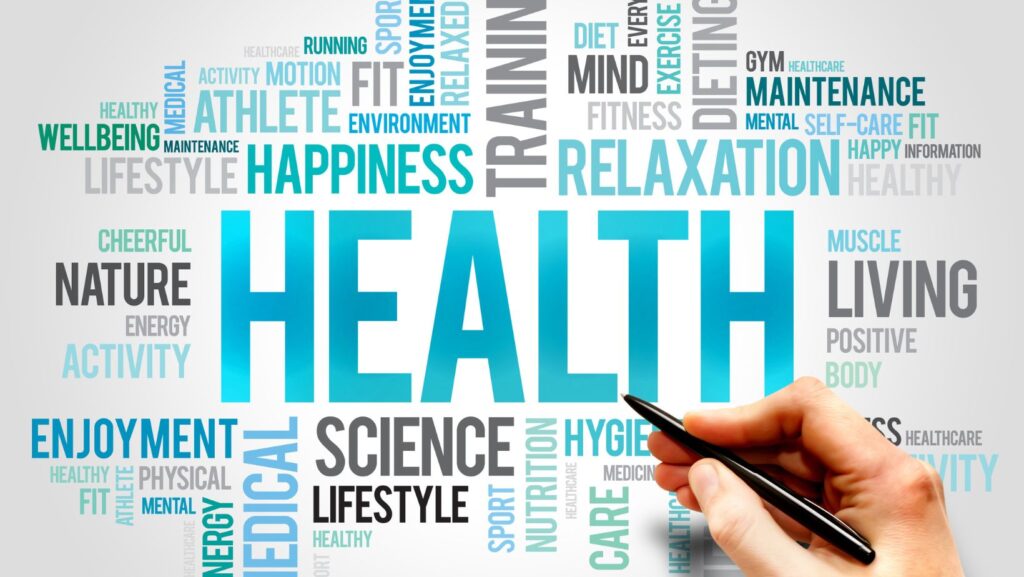Balancing academics, social life, and personal care can be a juggling act for students. In the whirlwind of lectures, exams, and social engagements, health often takes a backseat. However, maintaining good health is crucial, not just for physical well-being but also for academic success. Healthy students are better learners, and simple lifestyle adjustments can make a big difference.
5 Health Tips for Students
Maintaining optimal health is crucial for students to enhance both their academic performance and overall well-being. The following health tips provide practical ways for students to keep a balanced lifestyle while navigating their educational pursuits.
The Impact of Health on Academic Performance
 Healthy students tend to perform better academically. A study from the Centers for Disease Control and Prevention highlights that adequate nutrition and regular physical activity can improve students’ concentration, grades, and test scores. Nutrition plays a pivotal role as it fuels the brain. Students eating a balanced diet rich in fruits, vegetables, lean proteins, and whole grains often experience improved cognitive function, making learning easier and more effective. Additionally, physical exercise promotes better sleep patterns and increases energy levels, which in turn enhances brain function and academic performance.
Healthy students tend to perform better academically. A study from the Centers for Disease Control and Prevention highlights that adequate nutrition and regular physical activity can improve students’ concentration, grades, and test scores. Nutrition plays a pivotal role as it fuels the brain. Students eating a balanced diet rich in fruits, vegetables, lean proteins, and whole grains often experience improved cognitive function, making learning easier and more effective. Additionally, physical exercise promotes better sleep patterns and increases energy levels, which in turn enhances brain function and academic performance.
Balancing Mental and Physical Health
Balancing mental and physical health is essential for students. Mental health, often overshadowed by physical wellness, requires equal attention as it significantly influences students’ ability to function and thrive academically. Activities such as meditation, regular social engagements, and hobbies can mitigate stress and bolster mental health.
Nutrition Tips for Busy Students
Importance of a Balanced Diet
Eating a balanced diet enhances cognitive function and academic performance. Students benefit from meals rich in fruits, vegetables, lean proteins, and whole grains. These nutrients support brain health and improve concentration. For instance, omega-3 fatty acids found in fish bolster memory and learning. Similarly, complex carbohydrates in whole grains stabilize energy levels throughout the day, preventing mid-class slumps.
Staying Active: Exercise Recommendations
Set Achievable Goals and Use Technology and Apps
 Students benefit from setting achievable fitness goals. If students set realistic targets, they can enhance their consistency and performance in both the gym and the classroom. Examples include aiming for at least 150 minutes of moderate aerobic activity or 75 minutes of vigorous activity per week, as recommended by the World Health Organization.
Students benefit from setting achievable fitness goals. If students set realistic targets, they can enhance their consistency and performance in both the gym and the classroom. Examples include aiming for at least 150 minutes of moderate aerobic activity or 75 minutes of vigorous activity per week, as recommended by the World Health Organization.
Leveraging technology can simplify staying active for students. Numerous fitness applications offer customizable workout plans, progress tracking, and virtual classes that fit neatly into diverse schedules. Students can enhance their exercise experience by using apps such as MyFitnessPal for nutritional tracking and Strava for cycling and running performance, making it easier to manage both their physical activities and their academic responsibilities.
Importance of Adequate Sleep
Boosts Cognitive Functions & Enhances Emotional Well-being
 Adequate sleep significantly boosts brain functions. Students who get at least 7-9 hours of sleep demonstrate improved concentration, problem-solving skills, and memory recall compared to their sleep-deprived peers. This rest period allows the brain to consolidate new knowledge and repair neural pathways, enhancing cognitive processes essential for successful learning.
Adequate sleep significantly boosts brain functions. Students who get at least 7-9 hours of sleep demonstrate improved concentration, problem-solving skills, and memory recall compared to their sleep-deprived peers. This rest period allows the brain to consolidate new knowledge and repair neural pathways, enhancing cognitive processes essential for successful learning.
Sleep profoundly impacts emotional and mental health. Lack of sleep is linked to increased irritability, stress, and susceptibility to anxiety disorders, which can interfere with a student’s academic and social life. Regular, uninterrupted sleep helps regulate mood, promoting a more positive classroom experience and better social interactions.
Managing Stress Effectively
Adopting these health strategies ensures that students not only excel academically but also maintain a vibrant, balanced lifestyle. They’re equipped to manage stress effectively, fostering resilience that supports their educational and personal growth. By prioritizing these aspects of health—nutrition, exercise, and sleep—students can significantly enhance their academic performance and overall well-being. It’s essential for students to remember that integrating these health tips into daily life doesn’t just improve physical and mental health but also enriches their academic journey. Let these strategies be a guide to a healthier, more successful college experience.

